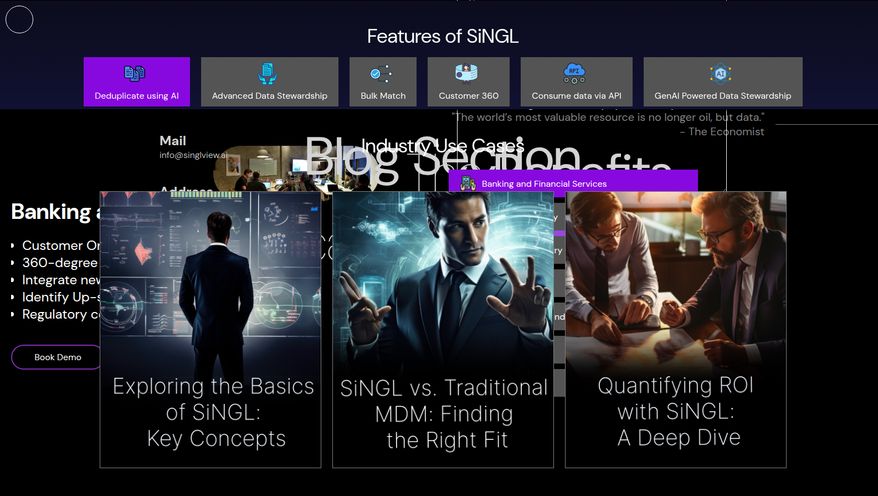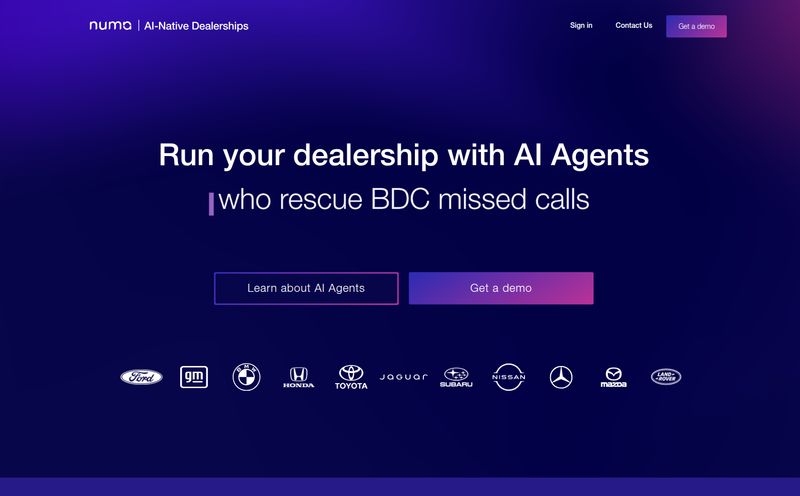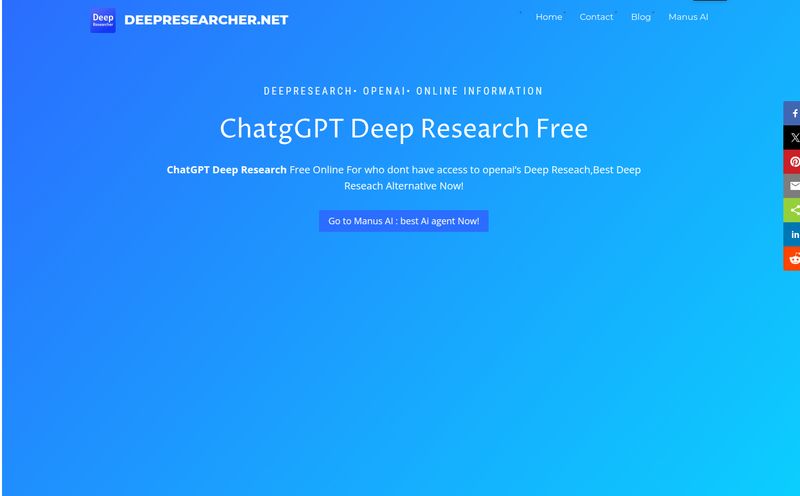I’ve been in the SEO and digital trends game for a long time. Long enough to see countless 'game-changers' and 'paradigm-shifters' flare up and then fizzle out. So when I hear about an AI platform aiming to redefine something as complex as neurological care, my skepticism meter starts twitching. It's an automatic reflex at this point.
But then I looked into EmpedocAI, and... well, the meter isn't screaming anymore. It's humming. There’s something genuinely interesting happening here, something that goes beyond the usual tech-bro buzzwords. This isn't just about throwing an algorithm at a problem. It feels more thoughtful.
Let's be honest, neurology is one of the final frontiers of medicine. The brain is an impossibly complex machine, and diagnosing what’s going wrong with it is often a long, frustrating process for both patients and doctors. So, can a platform like EmpedocAI really make a dent? Let's take a look.
So What Is EmpedocAI, Really?
At its core, EmpedocAI is an AI-powered platform designed for neurological diagnostics and highly personalized patient care. Think of it less as a robot doctor and more like an incredibly smart co-pilot for actual neurologists. Its whole philosophy seems to boil down to four actions: predict, track, validate, and match.
It’s designed to hoover up data—from medical records, real-time wearables, patient inputs—and then use its AI to spot patterns that might signal a neurological issue. We're talking about predicting conditions before they become debilitating, tracking their progression with a granularity we've never had before, and then matching patients with the most effective treatments or even clinical trials. It's an ambitious loop.
I’ve always felt that the best tech doesn't replace human expertise but augments it. It gives us superpowers. EmpedocAI seems to be built on that very idea, which is a refreshing change from the “AI will take all our jobs” narrative we're so used to hearing.

Visit EmpedocAI
The Features That Actually Matter
A platform is only as good as its features. So, what’s under the hood? It’s not just one thing, but how they all connect.
AI-Powered Diagnostics with a Human Touch
The headline feature is its diagnostic capability. The company claims a 92% diagnostic accuracy, which is a huge number. Of course, as a data guy, I immediately want to know, '92% of what? Under what conditions?' But even as a starting point, it’s impressive. The really smart part, though, is the integrated clinician dashboard. The AI makes a suggestion, but a human doctor makes the call. This clinician-in-the-loop model is critical. It builds trust and keeps the person with a decade of medical school in charge, just armed with better intel.
Speeding Up Clinical Trials
This, for me, is where EmpedocAI goes from a 'cool health app' to a potentially massive player in the medical-industrial complex. Finding the right patients for clinical trials is a notoriously slow and expensive nightmare for pharmaceutical companies. According to a report I read on patient recruitment in clinical trials, it’s one of the biggest bottlenecks in drug development. EmpedocAI’s ability to analyze its user base and 'match' qualified, pre-vetted patients to a trial could be revolutionary. It saves pharma companies millions in recruitment costs and, more importantly, could get life-changing drugs to market years faster. That's a win for literally everyone involved.
The Elephant in the Room is the Price Tag
Alright, let’s talk money. This is where you separate the sustainable businesses from the venture-capital-fueled dreams. I had to do a bit of digging for this, as their official site seems to be a bit... shy about it (I hit a 'page not found' when I looked for a pricing page, a classic!). But the pricing structure I pieced together is fascinating and, frankly, brilliant.
| Target Audience | Pricing Model | My Take |
|---|---|---|
| Patients (B2C) | $19.99 / month | For someone managing a chronic neurological condition, this could be a small price for peace of mind and proactive tracking. It's in line with other premium wellness app subscriptions. |
| Clinics (B2B) | $299 / month | This seems like a no-brainer for a busy neurology clinic. The time saved on diagnostics and patient management could easily justify the cost. It's an investment in efficiency. |
| CROs & Pharma | $25,000 / patient referral | This is the showstopper. It sounds insane, but in an industry where a single failed trial can cost hundreds of millions, paying $25k for a perfectly matched and engaged candidate is a bargain. This is their real engine. |
This tiered model shows they understand their market. They’re creating a user base with the consumer and clinic-facing products, which in turn becomes teh valuable pool of data they can provide to their high-ticket pharma clients. It’s a very smart ecosystem.
But Is It All Sunshine and Scalpels?
Look, I'm excited. But I’m not a cheerleader. There are some real hurdles here that we have to acknowledge.
First, there's the data dilemma. The platform's effectiveness hinges on the quality of data it receives, much of which comes from consumer wearables. Is the step count from my Fitbit or the heart rate data from an Apple Watch precise enough for neurological diagnostics? The classic 'garbage in, garbage out' principle applies. The accuracy of these devices is getting better, but for medical-grade insights, its a valid concern.
Second, there’s the 'black box' AI. We know it works (or at least, they say it does), but we don't have a lot of information on the specific algorithms at play. For the medical community to fully embrace this, there will need to be more transparency and peer-reviewed validation. It's a trust issue.
Finally, and this is the big one, there's clinician adoption. I've spent years trying to convince development teams to implement simple SEO fixes with mountains of data to back me up, and it's still a struggle. Convincing doctors, who are rightfully cautious and often overworked, to integrate a new tech platform into their workflow is the final boss fight. You can have the best tool in the world, but if nobody picks it up, it's just a paperweight.
My Two Cents on EmpedocAI’s Potential
So, where do I land? I'm cautiously optimistic. Very. EmpedocAI appears to have sidestepped the biggest pitfall of med-tech AI by keeping the human expert at the center of the process. It's not trying to replace doctors, it's trying to give them a better toolkit.
The multi-tiered business model is smart, creating a sustainable ecosystem rather than relying on a single revenue stream. The potential to accelerate clinical research is, without exaggeration, massive. If they can overcome the hurdles of data reliability and wide-scale clinician adoption, EmpedocAI could be one of those rare companies that actually does change the game. I’ll definitely be keeping an eye on this one.
Frequently Asked Questions about EmpedocAI
- What exactly does EmpedocAI do?
- EmpedocAI is an AI platform focused on neurology. It uses data from patients and their wearables to help predict and track neurological conditions, assists doctors in making diagnoses, and helps match patients to clinical trials for new treatments.
- Is EmpedocAI meant to replace neurologists?
- No, not at all. It's designed as a tool to assist clinicians. The platform provides data-driven insights and diagnostic suggestions, but the final medical decisions are left to the human doctor through an integrated dashboard.
- Who is this platform for?
- It has a unique model for three different groups: patients (who can subscribe for personal health tracking), clinics (who use it for more efficient patient care), and pharmaceutical companies (who use it to find candidates for clinical trials).
- How accurate is EmpedocAI's diagnostic tool?
- The company states a 92% diagnostic accuracy rate. While impressive, this figure would need to be backed by independent, peer-reviewed studies for full validation by the medical community.
- What are the main concerns with a platform like EmpedocAI?
- The primary concerns involve its reliance on the accuracy of consumer-grade wearables for data, a current lack of transparency about its specific AI algorithms, and the significant challenge of achieving widespread adoption among busy clinicians.
Final Thoughts
EmpedocAI is ambitious. It's tackling one of the toughest areas in medicine with a solution that feels both technologically advanced and surprisingly grounded in the realities of the healthcare system. It's not a magic wand that will solve neurology overnight. But it might just be one of the sharpest, most well-thought-out tools we've seen in a long time. For the sake of the millions of people affected by these conditions, I hope they succeed.
Reference and Sources
- Initial platform information and data sourced from EmpedocAI's profile on declom.ai.
- Information on clinical trial recruitment challenges: Gul, M., & Ali, Z. (2010). Patient Recruitment in Clinical Trials: Challenges and Solutions. Journal of Clinical Research & Bioethics.



